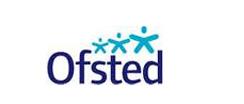Success in Science
Ofsted is the Office for Standards in Education, Children’s Services and Skills. They regulate and inspect to achieve excellence in the care of children and young people, and in education and skills for learners of all ages.
The Education and Inspections Act, which established the new Ofsted, specifically requires that in everything they do they should:
• promote service improvement
• ensure services focus on the interests of their users
• see that services are efficient, effective and promote value for money
This report on science draws on two inspection frameworks. From April 2004 until September 2005 whole school inspections were carried out under Section 10 of the Education Act. These inspections of schools required that inspectors include subject specific paragraphs on each subject area and recorded grades for subject specific judgments they made. As a consequence Ofsted held data on science from thousands of inspections providing a rich evidence base upon which to base judgments. In addition to these data, subject HMI carried out subject specific inspections that contributed both quantitative and qualitative data to the evidence base they held.
From September 2005 schools have been inspected using a new framework under Section 5 of the Education Act. This framework does not require the separate reporting or recording of judgments about specific subjects. The thousands of Section 5 inspections no longer contribute quantitative data to the evidence base for subjects. Some qualitative data may be found in some reports with reference to science. Thus from September 2005 until March 2007 inspection data was derived from science subject inspections to around 30 primary and thirty secondary schools each year.
The data gathered is analysed to make judgements about the state of science education. Quantitative data are presented selectively forexample: to exemplify standards over time. Qualitative data gathered are used to exemplify the text e.g. on quality of teaching, quality of curriculum or quality of leadership and management.
[b]Report contents:[/b]
Executive summary
Key findings
• Achievement and standards in primary schools
• Achievement and standards in secondary schools
• Quality of teaching and learning
• Primary science teaching
• Secondary science teaching
• Assessment in science
• Quality of the curriculum
• Quality of leadership and management in science
• Continuing professional development
• Recruitment of students to science post-16
• Literacy in science
• Spiritual, moral, social and cultural development
• Schools with specialist science status
Show health and safety information
Please be aware that resources have been published on the website in the form that they were originally supplied. This means that procedures reflect general practice and standards applicable at the time resources were produced and cannot be assumed to be acceptable today. Website users are fully responsible for ensuring that any activity, including practical work, which they carry out is in accordance with current regulations related to health and safety and that an appropriate risk assessment has been carried out.
Downloads
-
Success in science 225.29 KB
-
Success in science 636 KB





